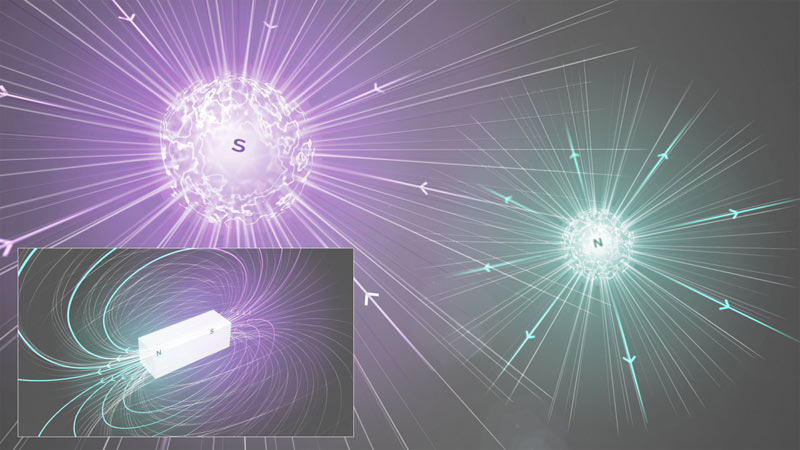magnetic monopole

A magnetic monopole is a hypothetical particle that carries a single magnetic pole, either north or south, instead of the usual dipole configuration. Paul Dirac suggested in t1931 that there should exist in nature a fundamental unit of magnetism, just as there exists a fundamental unit of electricity, the electron. This hypothetical particle is called the magnetic monopole because, unlike any known particle or magnet, it has only one magnetic pole. It is currently believed that if such an object does exist it must be very massive in order to explain why it has not been observed in high-energy experiments to date.
If magnetic monopoles exist, they would have far-reaching implications for our understanding of electromagnetism and the fundamental nature of matter.
In introducing the concept ig the magnetic minopole, Dirac was attempting to reconcile the equations of quantum mechanics with the laws of electromagnetism. He realized that the equations worked more smoothly if magnetic monopoles were allowed to exist. He proposed that monopoles could be thought of as the endpoints of long, thin tubes of magnetic field lines, similar to the way that electric charges are the endpoints of electric field lines.
Since then, experimental efforts have been made to detect magnetic monopoles, but none have been successful to date. Some physicists believe that magnetic monopoles might exist as a byproduct of the Big Bang, while others speculate that they could be created in particle accelerators. If magnetic monopoles are ever detected, they could help to explain several mysteries in physics, such as the quantization of electric charge and the unification of the fundamental forces.
In the meantime, researchers continue to study the theoretical properties of magnetic monopoles. For example, it is believed that magnetic monopoles would have a strong magnetic field, which could be used to manipulate other magnetic materials. They could also potentially be used in data storage and quantum computing applications. Additionally, the existence of magnetic monopoles would have implications for the interpretation of astronomical observations, as they could affect the behavior of cosmic rays and other energetic particles.

